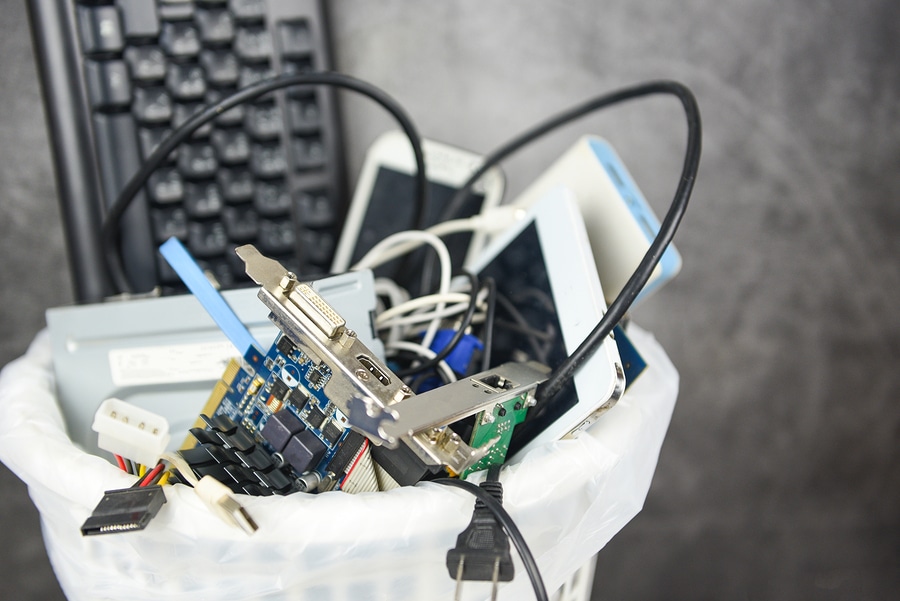Business E-Waste Requirements, Risks and Legislation

Unless you’ve been living under a rock for the last several decades, you’re no doubt fully aware of the fact that you can’t chuck old computers or other electronics in the trash. These items should not only be recycled to recover valuable metals that can be repurposed, but they also contain a variety of toxic materials that can cause pollution and harm when they go into landfills.
For North Dakota and South Dakota businesses, this can be a real headache. If you can’t toss old IT equipment in the trash when you upgrade, what should you do with it? You’ll need to create e-waste policies that ensure you not only act in an environmentally responsible manner, but that you follow environmental laws designed to protect the planet and its inhabitants. Why is this so important and what can you do?
Prevent Pollution
First and foremost, it’s critical that you protect your community from the potential damage that could result from dumping toxic e-waste. You don’t want to be responsible for harming the community that supports you or further contributing to rising pollution that diminishes ecosystems and seeps into our soil, water, and air.
That said, you can’t trust just any company offering to dispose of your e-waste. It’s important to use a vetted partner that not only holds certifications from watchdog organizations like e-Stewards and RIOS, but also guarantees reputable downstream vendors that won’t turn around and send your e-waste overseas. You need to make sure your IT assets aren’t being shipped wholesale to third-world countries where they pollute the environment and put you at risk for issues like data breach or legal compliance.
Comply with Environmental Laws
While there is currently no sweeping legislation related to e-waste disposal specifically, the EPA does have regulations regarding the dumping of hazardous waste, including more than 500 waste products listed in the Code of Federal Regulations (40 CFR Part 261), as well as some wastes not listed that are considered toxic or dangerous.
At this point, several states have also chosen to enact e-waste laws. Although North Dakota and South Dakota are not among them, many businesses in the Dakotas want to do their part. Some cities, such as Sioux Falls, have also banned electronics from the landfill, requiring businesses and residents in the 5-county area surrounding the city to find alternative disposal options. At the very least, you must comply with federal laws regarding the dumping of hazardous waste, but as a responsible business owner, you may want to do more.
Improve Your Image
Consumers these days are well aware of the harm e-waste dumping causes, and some are willing to voice their displeasure with such practices by committing their consumer dollars to environmentally responsible companies. When you do the right thing by properly recycling e-waste, you have the opportunity to improve your public image and vie for patronage from these concerned citizens.
Partner with a Certified ITAD Provider
It’s important to choose the right partner when you decide to recycle e-waste. You need a certified ITAD service provider that offers proven security and compliance. Look for certifications from renowned oversight organizations like R2 and e-Stewards to ensure that confidential data is securely handled and destroyed, and that e-waste is properly recycled.
If you need help disposing of e-waste, contact the qualified team at SEAM today at 605-274-7326 (SEAM) or online to request a quote and learn more.
SEAM provides IT recycling and data destruction services including onsite shredding and hard drive wiping to South Dakota, North Dakota, Minnesota, Iowa, and Nebraska.
Schedule a pickup or contact us for more information.





